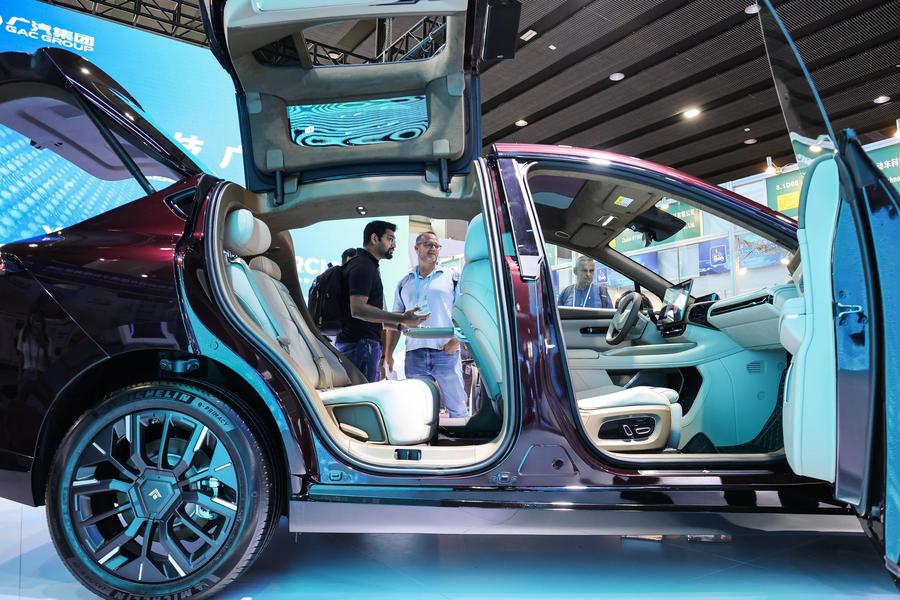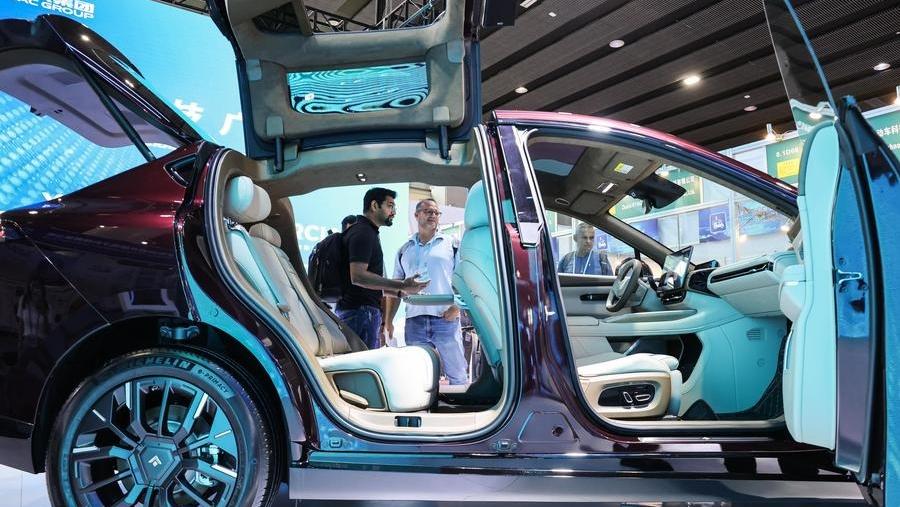
BEIJING, April 26 (Xinhua) -- At the end of March, Chinese smartphone maker Xiaomi unveiled its first electric vehicle (EV), the SU7, igniting a spark of excitement. At the launch event, Xiaomi's founder and CEO Lei Jun, whose vision includes creating "a dream car on a par with Porsche and Tesla," said that it was a product of pushing boundaries.
The market's positive response was immediate: the Xiaomi SU7 garnered almost 90,000 substantial orders within just 24 hours of its release; Xiaomi's stock jumped by 16 percent on its first trading day post-launch.
Business Insider remarked, "Apple abandoned its electric vehicle project. Now, one of its biggest rivals in China is showing how it's done."
Xiaomi's debut in the EV sector is expected to incentivize a new round of market competition. Price cuts across various brands after Xiaomi's launch, from the Huawei Aito M7 to the 2024 Xpeng G9, demonstrate the dynamic nature of China's EV market.
But the impact extends beyond China. Better and more affordable Chinese EVs are a boon for overseas consumers too. China's EV exports have seen a significant rise in recent years, with data showing a 77.6 percent increase to 1.2 million vehicles in 2023.
One of the reasons electric vehicles produced in China are popular worldwide is that they come in a wide variety of models with different prices, offering more choices for consumers. Moreover, they are equipped with rich software and hardware features, allowing consumers to fully experience the convenience and comfort that smart cars provide.
Despite the initial success, Chinese EVs are facing considerable challenges abroad. Creating products that better cater to the preferences of overseas consumers can count as one. But, a bigger problem comes from protectionist policies imposed by the West, with an "overcapacity" rhetoric aiming to suppress Chinese industries.
However, the fierce competition in China's new energy vehicle market, including price wars and fast quality upgrades, is not caused by the so-called "overcapacity." In addition, the problems facing the EV industries in the United States and Europe stem from inefficiencies in corporate operations, not from Chinese "overcapacity."
China's new energy products are competitive because they started early and have kept investing in its R&D, hence a leading edge in technology. Combined with the country's vast range of supporting industries, mega-size markets, and rich human resources, that leading edge becomes integrated competitiveness.
In a report earlier in April, Bloomberg found that no data is backing China's alleged "overcapacity" in the EV sector, saying that Chinese companies are more efficient rather than loaded with excess capacity. It added that Chinese companies aren't dumping EVs on global markets and Chinese EVs are not cheap overseas.
For instance, BYD's EV sedan Han is around 70,000 euros in the Netherlands, while the Tesla Model 3 long-range edition is sold at less than 60,000 euros.
China's green industry meets many countries' need to address the energy shortage and respond to climate change, and will contribute to the global green and low carbon transition.
Take the European Union as an example. According to the European Green Deal, all new cars and vans registered in the EU will be zero-emission by 2035, de-facto banning cars and vans with internal combustion engines except e-fuel ones from registering and providing huge space for EV development in the bloc. By adopting these sustainably designed EVs, including those made in China, Europe can move faster toward a decarbonized economy.
The expansion of Chinese car manufacturers into global markets underscores a broader narrative of China's rise as a technological and industrial powerhouse. And, China's latest accomplishments in the EV sector are not a threat. The application of new EV technologies, ranging from battery efficiency to intelligent driving solutions, offers valuable insights and inspiration for European manufacturers.
Increased competition from China would help European carmakers produce better cars in the long run, said Ola Kaellenius, chairman of the board of management of Mercedes-Benz Group, in a recent interview with the Financial Times, adding that protectionism was "going the wrong way." Chinese companies looking to export to Europe represent a "natural progression of competition and need to be met with better products, better technology, more agility," he added.
Over the last two decades, China's automotive sector has shifted from hosting foreign automakers' joint ventures to being pioneers in the EV domain. This evolution, as demonstrated by initiatives like Xiaomi's, is not merely about business expansion, but also a bold statement of China's commitment to sustainable development and its companies' dedication to delivering better products to consumers.




 A single purchase
A single purchase









